
Contemplative and easygoing, the INTP (The Logician) is among the rarest of the personality types, making up only 2.5% of the US population. They are enthusiastic learners who can be very devoted to their interests, and they assess situations rationally, spotting patterns and connections between facts that other types might miss. While they can be fairly private people, they become animated when explaining their ideas. They’re very tolerant towards others, but they’re also blunt and direct, prioritizing logic and reason over emotions.
You’ve probably encountered INTPs already in your life; maybe someone you know fits the description, or maybe you can relate to it yourself. Only around 2 in 100 people are INTPs, and they tend to be subtle non-conformists. In fact, INTPs make for some of the most intriguing celebrities and fictional characters. Marie Curie, Albert Einstein, and Charles Darwin are all believed to have this personality type, along with many renowned names in technology such as Bill Gates. Even in fiction, INTP characters such as Neo from “The Matrix” and Alice in “Alice in Wonderland” have captured the public imagination for years.
While you can learn a lot from reading about each personality type, analyzing the personalities of fictional characters and famous people can give you a new level of understanding. In the case of INTPs, as you see how their personality traits manifest in daily life and become more familiar with real-life INTP behavior, you might be able to recognize them better as a result. We’ve gathered a detailed list of 170 famous INTPs, so scroll down to satisfy your curiosity!
Page Contents
Famous INTPs
The list of famous INTPs is a long one. The INTP personality type is responsible for many scientific and artistic breakthroughs, because their unconventional perspective often defies existing assumptions and traditions, giving rise to innovative solutions. Many of the products that have become a regular part of our daily lives can be traced back to The Logician’s inventiveness. You can probably guess some names already; just think of famous people who are brilliant, conceptual, and reserved, with a passion for rationality. For INTPs, the world is full of mysteries waiting to be explored, and they’re eager to dive deeply into ideas and theories while remaining open to alternatives.
From Rene Descartes and Stephen King, to Woody Allen and Tina Fey, famous INTPs have carved out a legacy with their intellect and ingenuity. We’ve detailed several INTP celebrities below:
Musicians and Artists
According to a survey by the 16 personalities manual, The Logician is among the most interested in art appreciation among the different personality types. It’s not surprising, then, that many INTPs have made a significant impact in the fields of art and music. These can be the ultimate playground for INTPs, who relish experimenting with ideas and pushing boundaries. They’re especially drawn to art forms that incorporate a bit of science and technology, and they bounce between childlike enthusiasm and prolonged states of hyperfocus.
Because INTPs are not bound by conventions, their art and music can be eclectic and distinct, even genre-defying. Although they’re reluctant to express their emotions directly through their art, they bring an intellectual depth to it instead. They enjoy being able to craft new works from scratch. Actualizing the concepts that have been brewing in their heads can be very fulfilling.
David Byrne is a good example of an INTP artist and musician. As the lead singer and guitarist of the iconic rock band “Talking Heads,” he has enjoyed a decades-long career that earned him several awards. Time Magazine even dubbed him as “rock’s renaissance man.” Aside from his music, he has written books, released volumes of photographs, and produced TV shows, displaying the versatility that arises from one of the INTP’s cognitive functions called Extroverted Intuition. When he was forming Talking Heads, he was determined to break away from cliches long associated with rock. His songs are very abstract and metaphorical, and he portrays otherwise everyday things in a quirky light. In his performances, he comes off as cool and cerebral, usually sporting a blank facial expression. The INTP penchant for detachment is also apparent in his memoir; instead of talking about his personal story, he preferred to focus on theory as well as observations about life.

Here’s a list of some more INTP musicians and artists:
- Albrecht Durer, German painter and printmaker (Apocalypse; Melencolia I)
- Bill Wurtz, American singer-songwriter (Just Did a Bad Thing; And the Day Goes On)
- Caroline Polachek, American singer-songwriter (Door; Ocean of Tears; Parachute)
- Charles Schulz, American cartoonist (Peanuts)
- Dmitri Shostakovich, Russian pianist and composer (Symphony No. 5; Symphony No. 10)
- Ghostemane, American rapper (Squeeze; Bonesaw; Nihil)
- H.R. Giger, Swiss artist and designer (Necronom IV; Friedrich Kuhn)
- Jhonen Vasquez, American cartoonist and comic book writer (Johnny the Homicidal Maniac)
- Kim Seok-Jin, Korean singer and member of BTS (Awake; Moon; Epiphany)
- Lou Reed, American singer-guitarist of The Velvet Underground (Pale Blue Eyes)
- Matt Bellamy, British singer-songwriter of Muse (Tomorrow’s World; Muscle Museum)
- Stephen Hillenburg, American animator and marine science teacher (SpongeBob Squarepants)
- Tsugumi Ohba, Japanese manga artist (Death Note)
- Yoshihiro Tagashi, Japanese manga artist (Yu Yu Hakusho; Hunter x Hunter)
- Zdzislaw Beksinski, Polish painter and photographer
Writers
INTPs have a constant stream of ideas going through their heads, and writing can be the perfect avenue for them to explore these ideas. From T.S. Eliot to Terry Pratchett, there are many literary greats who fall into The Logician personality type. Interestingly, INTPs gravitate towards genres with intricate worldbuilding such as magical realism, fantasy, and science-fiction. These genres are also among the most open-ended, giving free rein to INTPs’ formidable imagination.
At the same time, INTPs constantly evaluate their work through a framework of logic. Regardless of how complex the storyline can get, INTPs make sure that all of the events and systems they’ve incorporated make sense. They’re willing to devote long hours to research and brainstorming. Stories written by INTPs are more focused on concepts or plot events rather than the emotional lives of their characters. INTP authors may play around with philosophical themes, create intricate puzzles, or conjure absorbing atmospheres that challenge the reader.
One of the most well-known modern INTP authors is Stephen King. His wide-ranging books, which often tackle crime or the supernatural, have earned him the title “King of Horror.” In true INTP fashion, he shows an unflinching willingness to explore the dark side of human nature in his stories, often with ironic or even funny undertones. His stories also feature playful logical tangents and classic tropes reimagined into something new. As a result, despite having written more than 80 books throughout his lifetime, his works remain very much original. He has even said in an interview that ever since he was a student, he had so many ideas that he felt his head was going to burst. Aside from working on several different projects all at once in solitude, he has a spontaneous streak when writing, doing numerous revisions and allowing the story to write itself.

Who are other prominent INTP writers? See the list below:
- Fernando Pessoa, Portuguese novelist and poet (The Book of Disquiet)
- Frank Herbert, American author (Dune)
- H.G. Wells, British author and sociologist (The Time Machine; The Invisible Man)
- H.P. Lovecraft, American writer (Necronomicon; The Dunwich Horror; The Call of Cthulhu)
- Jorge Luis Borges, Argentine writer and translator (Fictions; Labyrinths)
- Jules Verne, French author (Twenty Thousand Leagues Under the Sea)
- Lewis Carroll, British writer and logician (Alice’s Adventures in Wonderland; Jabberwocky)
- Osamu Dazai, Japanese author (The Setting Sun; No Longer Human)
- Stephen King, American author (Carrie; The Shining; It)
- Terry Pratchett, British author and humorist (Discworld; Good Omens)
- Thomas Mann, German author and social critic (The Magic Mountain; Death in Venice)
- T.S. Eliot, British-American writer (The Waste Land; The Love Song of J. Alfred Prufrock)
- William Burroughs, American writer and visual artist (Naked Lunch; Junkie; Queer)
Philosophers and Thinkers
INTPs are the most philosophical personality type in the 16 personalities system. Therefore, philosophy is a natural fit for The Logician, who is much more fascinated with the abstract side of life rather than the mundane, practical aspects of it. Prone to being lost in thought and being absent-minded, INTPs are most at home when contemplating grand ideas. They’re driven to form a comprehensive understanding of the world, whether examining why people act the way they do or scrutinizing the underpinnings of science.
Philosophy encompasses all of these impulses, and in a sense, the search for objective truth is the ultimate quest for INTPs. Their Introverted Thinking and Extroverted Intuition cognitive functions combine to form a flexible mindset that aims to ruthlessly analyze while remaining open to undiscovered possibilities. The word philosophy itself literally means “love of knowledge” – a sentiment that The Logician can very much resonate with.
Hannah Arendt was one of the most influential thinkers of the twentieth century, and she was also an INTP. Preoccupied with questions about politics and morality, she spent much of her life arguing against the misuse of authority and ideologies such as totalitarianism. One of her most prominent catchphrases is: “No one has the right to obey.” This free-spirited mindset appears all throughout her life. She read voraciously, formed a philosophy club as a student, and even got expelled for leading a boycott against a teacher. INTPs are unimpressed by authority and social norms for their own sake. They discard beliefs that don’t hold up to scrutiny, regardless of what other people think. In her later years, Arendt remained an independent thinker, never confining herself to one school of philosophy. Crucially, she relates thoughtlessness to ideology, even writing: “There is a strange interdependence between thoughtlessness and evil.”
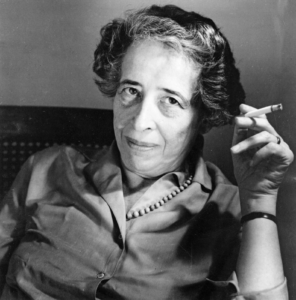
Here’s a list of other famous INTP philosophers and thinkers:
- Adam Smith, Scottish economist and philosopher
- Alan Turing, British mathematician and computer scientist
- Blaise Pascal, French mathematician and philosopher
- Friedrich Engels, German philosopher and historian
- Friedrich von Hayek, Austrian-British philosopher and economist
- George Berkeley, Irish philosopher
- Gilles Deleuze, French philosopher
- Gottfried Leibniz, German mathematician and philosopher
- Immanuel Kant, German philosopher
- John Locke, British philosopher and physician
- Karl Popper, Austrian-British philosopher
- Max Weber, German sociologist and historian
- Milton Friedman, American economist
- Mircea Eliade, Romanian historian and philosopher
- Rene Descartes, French philosopher and mathematician
Scientists
Science can be very appealing for INTPs, who are energized when they can indulge their curiosity and engage in problem-solving. The INTP type figures prominently in famous scientists throughout history – consider Marie Curie, Galileo Galilei, and Charles Darwin, just to name a few. One reason for this is that The Logician is willing to challenge long-held notions if these conflict with current data. INTPs tend to maintain an open-minded outlook, maintaining that no theory is ever final – an attitude that’s helpful in science, where findings and conclusions are constantly updated and improved.
INTPs can absorb huge amounts of information related to topics that interest them, and they’re motivated by a hunger for learning. Their passion for reason and innovation serves them well as scientists. Many of them end up at the cutting-edge of research, where they can help advance knowledge.
Described by many as the greatest scientist of the twentieth century, Albert Einstein revolutionized physics, and he’s constantly celebrated as an icon of genius. Like several other scientists, Einstein’s personality type was INTP. Since his early childhood, he possessed an intense curiosity along with a sense of wonder about nature. Abstract problems preoccupied him. Instead of merely reviewing data the usual way, he conducted imaginative thought experiments; for example, he would ask himself what it’d be like to race alongside a light beam. Einstein even took on a relaxed job requiring less effort so he could spend most of his time writing and researching. Because of his nonconformist thinking and resistance to conventional views, Einstein was able to devise the theory of relativity ahead of other scientists of his time. His Introverted Thinking function is expressed perfectly in this quote of his: “God doesn’t play dice with the universe.” For INTPs, there’s always an underlying explanation.
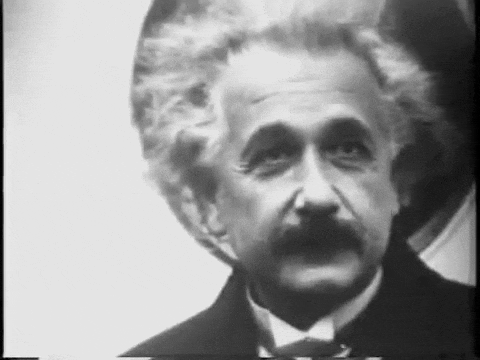
Here are some other famous INTP scientists:
- Marie Curie, French-Polish physicist
- Alexander Fleming, Scottish physician and bacteriologist
- Carl Friedrich Gauss, German mathematician and physicist
- Charles Babbage, British mathematician and inventor
- Charles Darwin, British naturalist
- Galileo Galilei, Italian astronomer and physicist
- Grigori Perelman, Russian mathematician
- Henri Poincare, French mathematician and physicist
- Jean Piaget, Swiss psychologist
- Johannes Kepler, German astronomer and mathematician
- Leonhard Euler, Swiss mathematician and physicist
- Michael Faraday, British physicist and chemist
- Paul Dirac, British theoretical physicist
- Richard Dawkins, British evolutionary biologist and writer
- Terence Tao, Australian-American mathematician
- Wolfgang Pauli, Austrian theoretical physicist
Actors and Filmmakers
While INTPs typically detach themselves from their emotions in real life, they can actually be more comfortable expressing emotion when they’re acting as a character. INTP actors have a chameleon-like ability to understand their characters and display their emotions on the spot. However, this usually happens once they’ve studied a character in-depth and understood the thought process behind the character’s actions.
Acting can be a good avenue for INTPs to exercise,Extroverted Feeling, their inferior function. INTPs who have developed this can mirror the behavior of others easily, and they’re particularly observant of body language, quickly breaking these exterior signals down to decode the underlying emotions. Although INTP actors might get stage fright initially because of their shyness, they usually become more comfortable after numerous performances.
Tina Fey is an award-winning INTP comedian, writer, and actress. From hosting Saturday Night Live to creating the sitcom 30 Rock, Fey has found her niche in satire. One of her most memorable acts was impersonating a well-known American politician – an irreverent move that catapulted her into the public eye. Fey has the classic INTP qualities of being blunt and sharply perceptive. She delivers her observational humor with dry sarcasm, and she’s quick to come up with one-liners on the go. Despite her gregarious persona on-stage, Fey appears to be introverted in her private life. She savors her alone time and steers away from having a Twitter account because she wants to write for herself, without being pressured. Her Perceiving preference was also evident when she said, “Sometimes if you have a difficult decision to make, just stall until the answer presents itself.”

Here are some other INTP actors and filmmakers you may be familiar with:
- Aubrey Plaza, American actress and comedian (Parks and Recreation; Legion)
- Bill Murray, American actor and comedian (Saturday Night Live; Meatballs; Groundhog Day)
- Cole Sprouse, American actor (The Suite Life of Zack and Cody; Riverdale)
- Christopher Walken, American actor and director (Annie Hall; The Dogs of War)
- Dan Harmon, American actor and writer (Community; Rick and Morty)
- Elliot Page, Canadian actor (The Umbrella Academy; Juno; Trailer Park)
- Freddie Highmore, British actor (Charlie and the Chocolate Factory; Finding Neverland)
- Jesse Eisenberg, American actor and writer (The Social Network; Zombieland)
- Larry David, American actor and writer (Fridays; Seinfield; Hannah Montana)
- Martin Freeman, British actor (The Hobbit; Black Panther; Love Actually)
- Richard Ayoade, British actor and comedian (The IT Crowd; Travel Man)
- Ridley Scott, British director and producer (The Martian; Alien; Prometheus)
- Rowan Atkinson, American actor and writer (Blackadder; Mr. Bean; Not the Nine O’Clock News)
- Seth Myers, American actor and TV host (Late Night with Seth Myers; Saturday Night Live)
- Woody Allen, American director and actor (Annie Hall; Midnight in Paris; Manhattan)
Other Interesting INTPs
Since INTPs tend to have diverse interests, there are countless other famous people with The Logician personality type across different fields. In particular, INTPs abound in technology, where they can pursue innovation freely and build new systems that make life easier. It’s common for The Logician to be curious about computers as a hobby, tinkering with code or hardware for hours. Famous INTPs in technology include: Bill Gates, the co-founder of Microsoft; Jaron Lanier, who pioneered virtual reality; and the founders of Google, Larry Page and Sergey Brin. INTPs have also made their mark on economics, chess, psychology, business, and many other industries.

Here’s a list of notable INTP people that didn’t fit into our previous categories. This proves just how versatile INTPs are and how they can excel at many different career paths:
- Abraham Lincoln, American President
- Alan Greenspan, American economist
- Daniil Dubov, Russian chess grandmaster
- David Keirsey, American psychologist
- Edward Snowden, American programmer and whistleblower
- James Madison, American President
- Jaron Lanier, American computer scientist and writer
- Joana Ceddia, Brazilian-Canadian vlogger
- Larry Page, American internet entrepreneur and computer scientist
- Margaret Hamilton, American computer scientist
- Masaru Ibuka, Japanese electronics industrialist
- Ryan Higa, American comedian and internet personality
- Sergey Brin, American internet entrepreneur and computer scientist
- Tim Berners-Lee, British computer scientist
- Tim Duncan, American basketball player and coach
- Tony Hsieh, American internet entrepreneur and venture capitalist
INTPs in Fiction
Despite being statistically rare in real life, INTP characters are represented widely in movies, TV series, books, animes, and even mythology. More often than not, INTPs end up as the protagonist or at least one of the main characters because of their unique skills and quirky personalities. Common fictional tropes for The Logician type include geniuses, mad scientists, and intellectuals, but they can also be simply the voice of reason among their group of friends. Whichever role they’re assigned to, INTP characters exhibit a fondness for logical thinking along with a fierce sense of individuality. They’re also crucial in providing ideas and insights that benefit other characters.
For examples of the INTP personality type in fictional characters, take a look at the list below:
Fictional Characters
- Alice, Alice in Wonderland
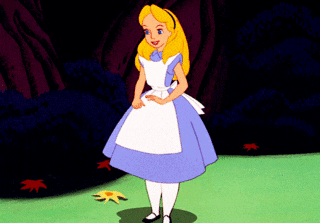
INTP females are rarer than INTP males, even in fiction, but Alice is a memorable literary character who matches INTP personality traits. Alice in Wonderland takes place in a surreal universe that plays by different rules, and Alice never stops forming questions and overthinking throughout the entire story. Although she’s perfectly well-mannered, she gives the impression of being somewhat neutral and detached. Her energy emerges the most when she’s alone and she can follow her curiosity. It’s also telling that the antagonist is an authority that nobody else dares to question – a situation that most INTPs would heavily dislike.
- Neo, The Matrix
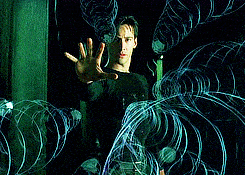
Thoughtful and analytical, Neo is a good fictional representative of The Logician personality. The premise of The Matrix is somewhat unsettling – reality as we know it is actually a virtual simulation. Still, Neo takes this all in stride. In fact, he starts out as a computer programmer who searches online for clues at night because he suspects that there’s something wrong with the world. His desire for knowledge leads him to accept the riskier red pill of enlightenment over the blue pill of security. While it turns out to be a wild ride, he adapts quickly to his situation, making decisions on the fly and deferring to his logic almost every time.
- Spencer Reid, Criminal Minds
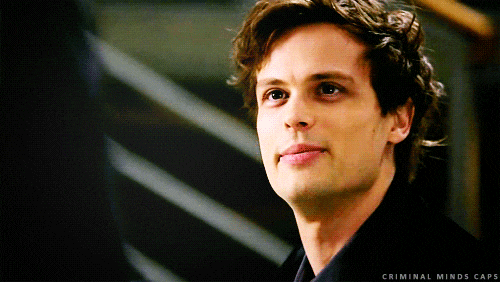
As an avid collector of facts and a quick thinker, Spencer Reid is the best embodiment of an INTP in the series Criminal Minds. His style of solving cases combines Introverted Thinking and Extroverted Intuition: he connects all of the different details gathered about the crime (Ne) then draws a logical conclusion from them. He’s prone to rambling explanations as well as sudden tangents during conversation, and he has a sharp eye for irrationality, immediately pointing out when something doesn’t make sense. Despite being good-natured, he struggles to be empathetic and to notice social cues. Another character even described him as using his intelligence as a shield against his emotions.
- Amy Farrah Fowler, Big Bang Theory

Amy’s bluntness and tendency to intellectualize are both major INTP traits. From the very first episode that she appeared in, Introverted Thinking has been a prominent part of her character. Almost always, she sees things from a rational lens, bringing up scientific processes as a metaphor for how she feels. Her ideas are original and even unpredictable, and she’s often willing to go with the flow with what her friends suggest. Although relating to people isn’t as instinctive for her, she has a deep need to be liked. She’s also prone to bringing up memories from long ago, which reflects her Introverted Sensing function.
- Bruce Banner, Marvel Cinematic Universe

When he’s not transforming into the Hulk, Bruce Banner is a reserved yet celebrated INTP physicist who gets enthusiastic about scientific discoveries. In fact, it was his interest in gamma rays that led to his mutation in the first place. Introspective and open to new experiences, he’s an Intuitive type who’s constantly looking to create innovative solutions. Notably, he has a “live and let live” approach. He rarely makes definite plans, and he’s much more attentive to the big picture than to details. He’s also somewhat wary of losing control over his emotions since this is what triggers him to turn into the Hulk.
Some other fictional INTP characters are:
- Hades (Greek mythology)
- Harry Beltik (Queen’s Gambit)
- Mr. Bean (Mr. Bean)
- Garfield (Garfield)
- Friedrich Bhaer (Little Women)
- Columbus (Zombieland)
- Lily Iglehart (Sex Education)
- Violet Harmon (American Horror Story)
- Aemon Targaryen (Game of Thrones)
- George Costanza (Seinfeld)
- Stefan Butler (Black Mirror)
- Nikolai Romily (Interstellar)
- Sam Shakusky (Moonrise Kingdom)
Movie Characters
When The Logician is cast as the protagonist in a movie, the story usually takes on an introspective slant. Ricky Fitts in “American Beauty” compels the audience to reflect because of his striking perspective on beauty, while Ellie Chu in “The Half of It” adds a deeper layer to the usual teen romance. INTP movie characters also often go against the grain, making unconventional choices based on their internal sense of logic. While INTP movie characters can seem to vary widely from each other at first glance, they share INTP hallmarks such as a strong inward orientation, an enthusiasm for problem-solving, and ingenuity.
Ariadne from Inception is a mature and well-developed INTP movie character. She’s originally an architecture graduate student who’s called on to design the dream layers for the inception mission. Although she refuses at first because of the danger involved, her fascination with crafting a dream world eventually wins out. Aside from being creative, she’s pragmatic and level-headed, and she picks up new concepts easily. Even in alarming situations, she maintains her cool, moving on right away to troubleshooting. Puzzles provoke Ariadne’s curiosity, from the mechanics of the dream world to people that she can’t figure out. Cobb, the protagonist, is a human puzzle for her; once she determines the cause of his emotional issues, she points this out honestly to him.

There are plenty of other INTP characters from past and present movies. Let’s take a look at who they are:
- Bob Harris (Lost in Translation)
- Bruce Banner (Marvel Cinematic Universe)
- Donnie Darko (Donnie Darko)
- Dr. Manhattan (Watchmen)
- Ellie Chu (The Half of It)
- Henry Jones Sr. (Indiana Jones)
- Josh Lucas (Clueless)
- Lucius Fox (The Dark Knight Trilogy)
- Malcolm Wilkerson (Malcolm in the Middle)
- Mark Zuckerberg (The Social Network)
- Maurice (Beauty and the Beast)
- Milo Thatch (Atlantis)
- Park Da-Song (Parasite)
- Ricky Fitts (American Beauty)
- Will Hunting (Good Will Hunting)
- Yoda (Star Wars)
TV Show Characters
TV shows are an excellent genre for exploring personality, as they can give a more in-depth portrayal of characters than movies. After all, you get to watch the same character evolve and adapt to changes throughout the course of several episodes and even seasons. For this reason, TV shows are brilliant at unpacking the nuances of the INTP personality type. Initially, INTP television characters may give off the impression of being somewhat distant, but as you get to know them better, their warmth and playful sense of humor emerge, as does their vulnerable side. As composed as INTPs may seem, they often have turbulent feelings that they bury underneath rationality, and they may second-guess themselves, uncertain of when to make a final decision.
Rustin Cohle of True Detective is a complex TV show protagonist who types as INTP. He may be a detective by trade, but he’s also a philosophical seeker who’s preoccupied with analyzing himself and finding inner peace. He lives a mostly solitary life, and his aloofness is complemented by a nihilistic worldview. Tradition and social games don’t interest him. Instead, his interests mostly revolve around reading, philosophy, and science. His Extroverted Feeling function orients him towards looking for interpersonal harmony, but he mainly expresses this by solving crimes in his area. What makes him such an excellent detective is his unusual method of getting suspects to reveal their crimes. He tries to decode their thinking process (Introverted Thinking) and then temporarily echoes their morals (Extroverted Feeling) so they can let down their guard. This versatility also helps him improvise because he can take on different identities on the spot.
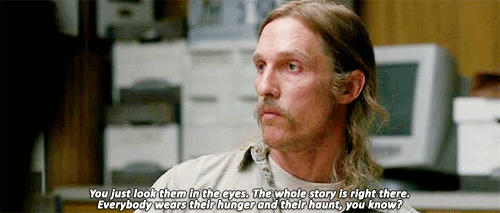
There are plenty of other INTP characters from TV series through the years! Let’s take a look at who they are:
- Alexei (Stranger Things)
- April Ludgate (Parks and Recreation)
- Abed Nadir (Community)
- Ben Hargreeves (The Umbrella Academy)
- Bernard Lowe (Westworld)
- Chidi Anagonye (The Good Place)
- Creed Bratton (The Office)
- Elliot Alderson (Mr. Robot)
- Eric Forman (That 70’s Show)
- Gale Boetticher (Breaking Bad)
- Jughead Jones (Riverdale)
- Ryohei Arisu (Alice in Borderland)
- Spencer Reid (Criminal Minds)
Book Characters
Books are an excellent medium for understanding fictional INTPs because they show not only characters’ actions but also the internal thinking processes behind them. While INTP characters might be happy to explain their ideas, they don’t exactly do it in detail. They may skip over steps and make intuitive leaps that they struggle to verbalize. INTPs have a very colorful inner world that they’re private about, and even people close to them might only see glimpses of it. Books can actually explore INTP fictional characters in ways that other mediums can’t because they can expose more of what goes on inside an INTP character’s head. Many books are written by INTP authors too, with characters that mirror them.
In A Series of Unfortunate Events, Violet Baudelaire displays the strengths of the INTP personality type when faced with challenges. The three Baudelaire siblings must deal with disaster after disaster, and Violet saves the day several times with her resourcefulness and intelligence. Invention is her talent. She looks up to Nikola Tesla, and one competition judge described her as being able to invent anything with her hands tied behind her back. Sharp and inquisitive, Violet prefers to act on her own, mostly keeping her thoughts to herself. On top of being able to work quickly with whatever materials she has at the moment, she tends to disregard rules. She has a strong suspicion of authority figures, even rebelling against them directly.

There are many other book characters with the INTP personality type – here are some of them:
- Abraham Van Helsing (Dracula)
- Benjamin (Animal Farm)
- Bernard Marx (Brave New World)
- Coraline Jones (Coraline)
- Death (Discworld)
- Greg Heffley (Diary of a Wimpy Kid)
- Ian Malcolm (Jurassic Park)
- Kafka Tamura (Kafka on the Shore)
- Magnus Chase (Percy Jackson and the Olympians)
- Matilda (Matilda)
- Mr. Bennet (Pride and Prejudice)
- Pierre Bezhukov (War and Peace)
- Smaug (The Hobbit)
- Victor Frankenstein (Frankenstein)
- Winston Smith (1984)
Anime Characters
INTPs are very prominent in anime. One recurring plot element is pairing a loud, energetic character with someone who’s the cool, quiet type – and INTPs can easily fit into this role. INTP anime characters are perceptive observers, noticing things that other characters don’t. They may be cast as mentors or even detectives who can piece together obscure clues and get to the heart of the matter no matter what. Many anime scenes involve INTP characters solving roadblocks with their wit; they’re capable of evaluating situations with a great deal of accuracy. They have a straightforward attitude with other people, and they often make funny or sarcastic remarks.
L of Death Note is a vivid INTP anime character because he takes many INTP qualities to extremes. Known as a top detective, L pushes his Introverted Thinking to its limit in trying to pin down who’s causing the alarming number of deaths across the country. Because he tries to consider every possible situation with a keen eye for inconsistencies, he gets steadily closer to the truth. He also avoids speaking in absolutes. Rather, he describes his assumptions based on what percentage they’re likely to be true. In his detective work, L only picks out cases that are intellectually challenging for him, saying that he doesn’t do it for the sake of justice. He rarely shows any kind of emotion, and he doesn’t observe many social courtesies. For example, he always squats even when seated regardless of what other people think.

This being said, we managed to pinpoint a few more anime characters who show INTP characteristics.
See some Famous INTP Anime Characters in this article.
